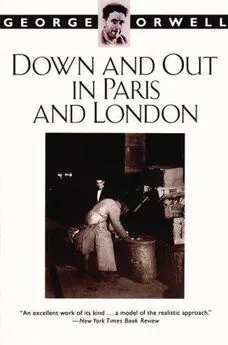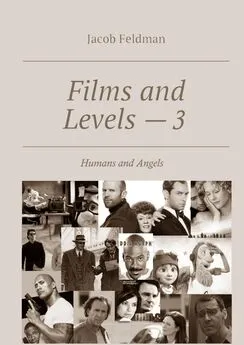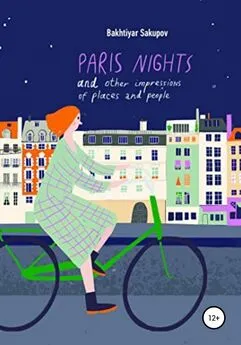George Orwell - Down and Out in Paris and London
- Название:Down and Out in Paris and London
- Автор:
- Жанр:
- Издательство:неизвестно
- Год:неизвестен
- ISBN:нет данных
- Рейтинг:
- Избранное:Добавить в избранное
-
Отзывы:
-
Ваша оценка:
George Orwell - Down and Out in Paris and London краткое содержание
Down and Out in Paris and London - читать онлайн бесплатно полную версию (весь текст целиком)
Интервал:
Закладка:
approaching, one of them runs behind the camera and
pretends to take a photograph. Then as the victim reaches
them, they exclaim:
"There y'are, Sir, took yer photo lovely. That'll be a
bob."
"But I never asked you to take it," protests the victim.
"What, you didn't want it took? Why, we thought
you signalled with your 'and. Well, there's a plate wasted!
That's cost us sixpence, that 'as."
At this the victim usually takes pity and says he will
have the photo after all. The photographers examine the
plate and say that it is spoiled, and that they will take a
fresh one free of charge. Of course, they have not really
taken the first photo; and so, if the victim refuses, they
waste nothing.
Organ-grinders, like acrobats, are considered artists
rather than beggars. An organ-grinder named Shorty, a
friend of Bozo's, told me all about his trade. He and his
mate "worked" the coffee-shops and public-houses round
Whitechapel and the Commercial Road. It is a mistake to
think that organ-grinders earn their living in the street;
nine-tenths of their money is taken in coffee-shops and
pubs-only the cheap pubs, for they are not allowed into
the good-class ones. Shorty's procedure was to stop
outside a pub and play one tune, after which his mate,
who had a wooden leg and could excite compassion, went
in and passed round the hat. It was a point of honour
with Shorty always to play another tune after receiving
the "drop"an encore, as it were; the idea being that he
was a genuine entertainer and not merely paid to go
away. He and his mate took two or three pounds a week
between them, but, as they had to pay fifteen shillings a
week for the hire of the organ, they only averaged a
pound a week each. They were on the streets from eight
in the morning till ten at night, and later on Saturdays.
Screevers can sometimes be called artists, sometimes
not. Bozo introduced me to one who was a "real" artist-
that is, he had studied art in Paris and submitted
pictures to the Salon in his day. His line was copies of
Old Masters, which he did marvellously,
considering that he was drawing on stone. He told me
how he began as a screever:
"My wife and kids were starving. I was walking home
late at night, with a lot of drawings I'd been taking round
the dealers, and wondering how the devil to raise a bob
or two. Then, in the Strand, I saw a fellow kneeling on
the pavement drawing, and people giving him pennies. As
I came past he got up and went into a pub. 'Damn it,' I
thought, 'if he can make money at that, so can L' So on
the impulse I knelt down and began drawing with his
chalks. Heaven knows how I came to do it; I must have
been lightheaded with hunger. The curious thing was
that I'd never used pastels before; I had to learn the
technique as I went along. Well, people began to stop and
say that my drawing wasn't bad, and they gave me nine-
pence between them. At this moment the other fellow
came out of the pub. 'What in are you doing on my
pitch?' he said. I explained that I was hungry and had to
earn something. 'Oh,' said he, 'come and have a pint with
me.' So I had a pint, and since that day I've been a
screever. I make a pound a week. You can't keep six kids
on a pound a week, but luckily my wife earns a bit taking
in sewing.
"The worst thing in this life is the cold, and the next
worst is the interference you have to put up with. At
first, not knowing any better, I used sometimes to copy a
nude on the pavement. The first I did was outside St.
Martin's-in-the-Fields church. A fellow in blackI suppose
he was a churchwarden or somethingcame out in a
tearing rage. 'Do you think we can have that obscenity
outside God's holy house?' he cried. So I had to wash it
out. It was a copy of Botticelli's Venus. Another time I
copied the same picture on the Embankment. A
policeman passing looked at it, and
then, without a word, walked on to it and rubbed it out
with his great flat feet."
Bozo told the same tale of police interference. At the
time when I was with him there had been a case of
"immoral conduct" in Hyde Park, in which the police had
behaved rather badly. Bozo produced a cartoon of Hyde
Park with policemen concealed in the trees, and the
legend, "Puzzle, find the policemen." I pointed out to him
how much more telling it would be to put, "Puzzle, find
the immoral conduct," but Bozo would not hear of it. He
said that any policeman who saw it would move him on,
and he would lose his pitch for good.
Below screevers come the people who sing hymns, or
sell matches, or bootlaces, or envelopes containing a few
grains of lavender-called, euphemistically, perfume. All
these people are frankly beggars, exploiting an appearance
of misery, and none of them takes on an average more
than half a crown a day. The reason why they have to
pretend to sell matches and so forth instead of begging
outright is that this is demanded by the absurd English
laws about begging. As the law now stands, if you
approach a stranger and ask him for twopence, he can call
a policeman and get you seven days for begging. But if
you make the air hideous by droning "Nearer, my God, to
Thee," or scrawl some chalk daubs on the pavement, or
stand about with a tray of matches-in short, if you make a
nuisance of yourself-you are held to be following a
legitimate trade and not begging. Match-selling and street-
singing are simply legalised crimes. Not profitable crimes,
however; there is not a singer or match-seller in London
who can be sure of £5o a year-a poor return for standing
eighty-four hours a week on the kerb, with the cars
grazing your backside.
It is worth saying something about the social position
of beggars, for when one has consorted with them, and
found that they are ordinary human beings, one cannot
help being struck by the curious attitude that society
takes towards them. People seem to feel that there is
some essential difference between beggars and ordinary
"working" men. They are a race apart, outcasts, like
criminals and prostitutes. Working men "work," beggars
do not "work"; they are parasites, worthless in their very
nature. It is taken for granted that a beggar does not
"earn" his living, as a bricklayer or a literary critic
"earns" his. He is a mere social excrescence, tolerated
because we live in a humane age, but essentially
despicable.
Yet if one looks closely one sees that there is no
essential
difference between a beggar's livelihood and that
of numberless respectable people. Beggars do not work, it
is said; but, then, what is
work ? A navvy works by
swinging a pick. An accountant works by adding up
figures. A beggar works by standing out of doors in all
weathers and getting varicose veins, chronic bronchitis,
etc. It is a trade like any other; quite useless, of course -
but, then, many reputable trades are quite useless. And as
a social type a beggar compares well with scores of others.
He is honest compared with the sellers of most patent
medicines, high-minded compared with a Sunday
newspaper proprietor, amiable compared with a hire-
purchase tout-in short, a parasite, but a fairly harmless
parasite. He seldom extracts more than a bare living from
the community, and, what should justify him according to
our ethical ideas, he pays for it over and over in suffering.
I do not think there is anything about a beggar that sets
him in a different class from other people, or gives most
modern men the right to despise him.
Then the question arises, Why are beggars despised? -
for they are despised, universally. I believe it is for the
simple reason that they fail to earn a decent living. In
practice nobody cares whether work is useful or useless,
productive or parasitic; the sole thing demanded is that it
shall be profitable. In all the modern talk about energy,
efficiency, social service and the rest of it, what meaning
is there except "Get money, get it legally, and get a lot of
it"? Money has become the grand test of virtue. By this
test beggars fail, and for this they are despised. If one
could earn even ten pounds a week at begging, it would
become a respectable profession immediately. A beggar,
looked at realistically, is simply a business man, getting
his living, like other business men, in the way that comes
to hand. He has not, more than most modern people, sold
his honour; he has merely made the mistake of choosing
a trade at which it is impossible to grow rich.
XXXII
I WANT to put in some notes, as short as possible, on
London slang and swearing. These (omitting the ones
that everyone knows) are some of the cant words now
used in London:
A gagger-beggar or street performer of any kind. A
moocher-one who begs outright, without pretence of
doing a trade. A nobbler-one who collects pennies for a
beggar. A chanter-a street singer. A clodhopper -a street
dancer. A mugfaker-a street photographer. A glimmer-
one who watches vacant motor-cars. A gee (or jee-it is
pronounced jee)-the accomplice of a cheapjack, who
stimulates trade by pretending to buy
something. A split-a detective. A flattie-a policeman. A
dideki-a gypsy. A toby-a tramp.
A drop-money given to a beggar. Funkumlavender or
other perfume sold in envelopes. A boozer -a public-
house. A slang-a hawker's licence. A kip -a place to
sleep in, or a night's lodging. SmokeLondon. A judy-a
woman. The spike-the casual ward. The lump-the casual
ward. A tosheroon-a half-crown. A denner-a shilling. A
hog-a shilling. A sprowsie-a sixpence. Clods-coppers. A
drum-a billy can. Shackles-soup. A chat-a louse. Hard-
up-tobacco made from cigarette ends. A stick or cane -a
burglar's jemmy. A peter-a safe. A bly-a burglar's oxy-
acetylene blow-lamp
To bawl-to suck or swallow. To knock off-to steal. To
skipper-to sleep in the open.
About half of these words are in the larger diction-
aries. It is interesting to guess at the derivation of some
of them, though one or two-for instance, "funkum" and
"tosheroon"-are beyond guessing. "Deaner" presumably
comes from "denier." "Glimmer" (with the verb "to
glim") may have something to do with the old word
"glim," meaning a light, or another old word "glim,"
meaning a glimpse; but it is an instance of the formation
of new words, for in its present sense it can hardly be
older than motor-cars. "Gee" is a curious word;
conceivably it has arisen out of "gee," meaning horse, in
the sense of stalking horse. The derivation of "screever"
is mysterious. It must come ultimately from scribo, but
there has been no similar word in English for the past
hundred and fifty years; nor can it have come directly
from the French, for pavement artists are unknown in
France. "Judy" and "bawl" are East End words, not
found west of Tower Bridge. "Smoke" is a word used
only by tramps. "Kip" is Danish. Till quite recently
the word "doss" was used in this sense, but it is now
Читать дальшеИнтервал:
Закладка:









